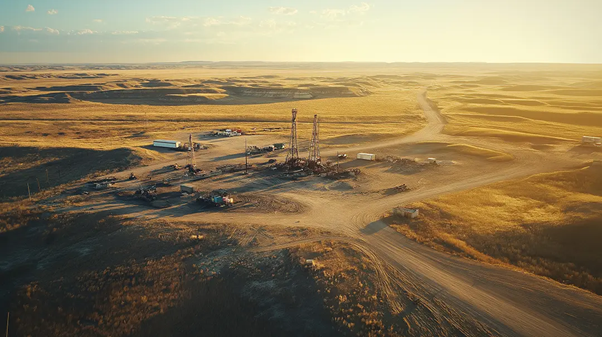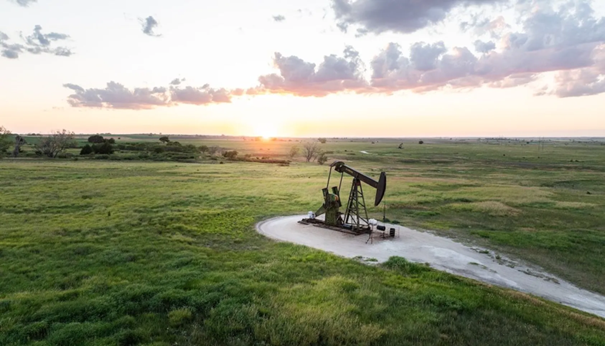Buying property in Alabama isn’t just about the land you see—it’s also about what lies beneath. From oil to limestone, what’s underground could be worth more than the surface itself. But here’s the catch: unless you understand how Alabama mineral rights work, you might be buying a home without owning the resources below it.
Mineral rights refer to legal ownership of subsurface resources such as oil, natural gas, or coal. In Alabama, these rights are often separated—or “severed”—from surface ownership, making the landscape of property law far more layered than many realize.
Before diving in, it’s crucial to understand the difference between surface rights (the ability to build, live, and farm on your land) and subsurface rights (the legal right to access, extract, and profit from underground minerals). Owning one doesn’t guarantee the other.
What Are Mineral Rights—and Why Do They Matter in Alabama?
Mineral rights are the legal rights to explore, extract, and sell underground resources located beneath a parcel of land. These rights can be sold or leased independently of the land above. In Alabama, understanding these rights is particularly critical due to a long and tangled history of land use, mineral leasing, and industrial development.
Unlike surface rights—which allow you to enjoy what’s on top—mineral rights govern what lies below. This division means you could own a home but have no say if a company wants to drill for gas under it.
Alabama’s geology holds a variety of valuable resources, including:
- Oil – Found primarily in southwest counties like Baldwin and Escambia
- Natural gas – Often extracted in conjunction with oil or coalbed methane
- Coal – Abundant in north-central Alabama, especially in Jefferson and Walker counties
- Limestone – Used in construction and industrial processes, common in central Alabama
- Iron ore – Historically important, especially around Birmingham
The complexity in Alabama stems from a long tradition of severed estates. As land changed hands over generations, mineral rights were frequently retained or sold separately, leaving many current owners uncertain about what they truly own.
Who Owns the Minerals Under My Property in Alabama?
If you’re buying property in Alabama, don’t assume that the mineral rights come with it. In many cases, they don’t. This is because of something called severed mineral rights—when mineral ownership is legally separated from the surface.
It’s entirely possible for one person to own the surface land and another to own the minerals underneath. That means the mineral owner may have the right to access your land to extract resources, even without your permission.
Ownership splits often stem from older deeds. For example, a 1950 land sale might state that the seller “reserves all oil, gas, and other minerals,” meaning they or their heirs still control what’s beneath that land today. These historical clauses can remain enforceable, even decades later.
Even more confusing, mineral rights can be divided among multiple parties. One person might hold the oil rights, while another holds the rights to coal or limestone. Ownership might also be shared across heirs, with each owning a fractional interest passed down through generations.
How Do I Check If Mineral Rights Are Included in My Property Purchase?

To avoid surprises, you must verify mineral ownership before closing a property deal in Alabama. This involves conducting a detailed title search that tracks the legal history of the land and any separate mineral estates.
Here’s how to get started:
- County clerk records – These public records can reveal past severances, deeds, and mineral reservations
- Title companies – Many offer detailed reports showing surface and subsurface ownership
- Mineral abstractors – Specialists who trace mineral ownership across decades or even centuries
- Alabama Department of Revenue – May hold production or tax data related to minerals on your land
Be alert for red flags during your search. Phrases like “excepting and reserving all minerals” or simply missing clauses about mineral rights are common signs that those rights are no longer attached. Ambiguous or outdated language in older deeds can also obscure current ownership.
What Are the Main Types of Mineral Rights in Alabama?
Understanding what kind of interest you—or someone else—holds in mineral rights helps clarify your position and options. Mineral rights in Alabama typically fall into five main categories:
Mineral Interest (Full Rights)
This is the most complete form of ownership. A person with a mineral interest can explore, lease, and extract minerals—and they earn all associated profits.
Pros: Full control and profit potential
Cons: Also responsible for exploration and production costs if not leased
Royalty Interest
This gives the holder a share of production revenue without paying for drilling or operations. It’s common when mineral owners lease rights to a company.
Pros: Passive income
Cons: No control over drilling or surface access
Working Interest
This allows the holder to operate or invest in mineral extraction, sharing in both profits and costs.
Pros: High earning potential
Cons: High financial risk due to operational expenses
Overriding Royalty Interest
An interest carved out of a working interest. It entitles the holder to a share of production revenue without ownership of the actual minerals.
Pros: Revenue with no mineral ownership
Cons: Temporary—ends when the lease ends
Surface Use Rights Related to Minerals
Even without mineral ownership, some agreements allow access to the surface for exploration or transport.
Pros: Can generate access fees or compensation
Cons: May cause disruption or loss of privacy
What Legal Framework Governs Mineral Rights in Alabama?
Mineral rights in Alabama are governed by a mix of state statutes, common law doctrines, and federal regulations, depending on the mineral type and location.
Relevant statutes can be found in the Code of Alabama, Title 9 (Natural Resources) and Title 40 (Taxation). However, many legal disputes are settled based on established common law principles.
Key legal principles include:
- Rule of capture – The first to extract a resource owns it, even if it migrates from another property
- Dominance of the mineral estate – Mineral owners generally have the right to access the surface
- Surface damage acts – Some protections exist for landowners when surface disruption occurs
Understanding these principles is essential before negotiating leases or assuming you control mineral development on your land.
Can Mineral Rights Be Sold or Leased Separately in Alabama?
Yes, in Alabama, mineral rights can be sold or leased separately from surface rights. These transactions are often handled through formal deeds or lease agreements. A common scenario: a landowner retains surface rights but leases mineral rights to an oil or gas company for exploration and extraction.
Standard leases typically include royalty payments and signing bonuses. These agreements can generate passive income but also allow industrial activity on the land.
Common lease provisions include:
- Length of lease – Primary terms (e.g., 3 years) with optional secondary terms if production begins
- Surface access permissions – Defines how and where the company can operate on the land
- Shut-in clauses – Allows companies to pause production without losing rights
- Pooling and unitization rights – Permits the combination of multiple tracts for more efficient drilling
Before signing anything, always consult a qualified attorney to review the terms and protect your interests.
What Is the “Dominance of the Mineral Estate” Rule—and How Does It Affect You?
Alabama follows the “dominance of the mineral estate” doctrine. This means that, in most cases, mineral rights legally outweigh surface rights. Mineral owners or leaseholders can access the land to extract resources—even if you own the surface.
For example, a rural homeowner may suddenly learn that a company plans to drill a gas well in their backyard because the mineral rights were severed decades ago. Surface owners often have little legal power to stop such activities unless specific protections were written into earlier agreements.
That’s why it’s critical to:
- Request surface use agreements limiting equipment placement
- Negotiate damage compensation clauses
- Seek setback restrictions that keep drilling away from homes or wells
What Are the Risks of Not Owning the Mineral Rights?
Failing to secure mineral rights during a property purchase can introduce serious risks:
- Surprise drilling or mining operations
- Decreased property value
- Inability to stop surface disturbance
- Difficulty selling property later
If you’re unsure about the mineral rights status, consult an oil and gas attorney. Legal recourse may exist, but mitigation is easier if addressed before you sign the purchase agreement.
Are Mineral Rights Inherited or Lost Over Time in Alabama?
Mineral rights in Alabama are treated like other forms of real estate—they can be inherited, sold, or passed down. If the original owner dies without a will, intestate succession laws determine who inherits the rights.
Alabama does not currently have a dormant mineral act, which in some states allows surface owners to reclaim unused mineral rights after a certain period. That means mineral interests can remain valid even if unused for generations.
To trace inherited rights:
- Research wills and probate records
- Examine historical deeds
- Work with a mineral abstractor or landman
How Do I Negotiate a Mineral Rights Lease in Alabama?

If you own or plan to acquire mineral rights, negotiating a lease properly is essential. Follow these steps:
- Verify mineral ownership before initiating talks
- Consult an oil & gas attorney to understand your leverage
- Research market royalty rates in your county
- Negotiate bonus payments and clarify payment timing
- Include protective surface use clauses to preserve your land
Sample clauses—like those limiting truck traffic or requiring land restoration—can protect your long-term interests.
What Are Typical Royalties and Bonuses Paid in Alabama?
Royalty payments in Alabama typically range from 12.5% to 25% of the value of extracted minerals. Lease bonuses can vary widely—anywhere from $50 to over $500 per acre, depending on location and demand.
Royalties are usually calculated based on the net proceeds from production, after deducting post-production costs, unless otherwise negotiated.
How Are Mineral Rights Taxed in Alabama?
Mineral rights generate tax obligations, especially when producing income. In Alabama, taxation includes:
- Severance tax – Applied to oil and gas extraction
- Property tax – Mineral interests are assessed annually
- IRS reporting – Royalties and bonuses must be reported; expect a 1099-MISC
Missed filings or incorrect deductions can lead to penalties, so it’s best to work with a tax professional familiar with energy income.
How Do Eminent Domain and Public Projects Affect Mineral Rights in Alabama?
Government agencies may access private mineral rights under eminent domain, typically for infrastructure projects. Though rare, mineral interests may be impacted by:
- Pipelines
- Highway expansions
- Public utility infrastructure
Buyers near known expansion zones should review public records and long-term development plans to assess potential risks.
What Should Be in a Purchase Agreement Regarding Mineral Rights?
Before closing on a property, confirm that your purchase agreement clearly addresses minerals. Look for:
- Explicit mineral rights clause – Are they included or excluded?
- Warranty of title – Does the seller legally own the minerals?
- Disclosure of known mineral activity
- Surface use waivers or protections
Don’t skip legal review—it could save you future legal battles.
What Are Common Mistakes Alabama Buyers Make with Mineral Rights?
Many property buyers make critical errors when it comes to minerals, such as:
- Assuming mineral rights are included
- Failing to research prior severance
- Ignoring lease encumbrances
- Not budgeting for legal/title work
- Skipping detailed seller interviews
Avoid these by staying proactive and detail-oriented.
Can You Get Title Insurance for Mineral Rights in Alabama?
Standard title insurance usually does not cover mineral rights. However, some policies offer mineral endorsements for an additional fee.
Ask your title company to:
- Clarify mineral coverage
- Identify exclusions
- Recommend appropriate endorsements
This extra step can help avoid costly surprises.
What Tools or Professionals Can Help You Navigate Mineral Rights in Alabama?
Navigating mineral rights requires expert help. Consider working with:
- Real estate attorneys
- Mineral rights brokers
- Petroleum landmen
- Title abstractors
- Local realtors familiar with mineral law
These professionals can help you evaluate, negotiate, and protect your property interests.
What Counties in Alabama Have the Most Active Mineral Production?
If you’re buying in a mineral-rich area, it pays to know what’s being pulled from the ground. Key counties include:
- Tuscaloosa – Oil, Natural Gas
- Jefferson – Coal
- Shelby – Limestone
- Walker – Coal, Methane Gas
- Baldwin – Oil & Gas Exploration
Activity in these areas often leads to more severed estates and increased lease competition.
What Are the Environmental Impacts of Mineral Development on Your Land?
Mineral extraction carries environmental risks that can impact property value and habitability. Common concerns include:
- Water contamination
- Land subsidence
- Habitat disruption
- Noise and traffic
To mitigate risks, buyers can demand:
- Water testing clauses
- Setback requirements
- Land restoration agreements
- Limited hours of operation
These should be built into leases or purchase contracts whenever possible.
Conclusion
In Alabama, what you don’t know about mineral rights can hurt you. That’s why understanding what lies beneath the land is just as important as what’s on it.
From researching title history to negotiating lease clauses, mineral rights require the same attention and due diligence as any other property asset. In fact, they should be treated as their own asset class, with distinct value, risks, and legal implications.
So if you’re buying property in Alabama, don’t stop at the fence line. Dig deeper.
Find a Home-Based Business to Start-Up >>> Hundreds of Business Listings.















































